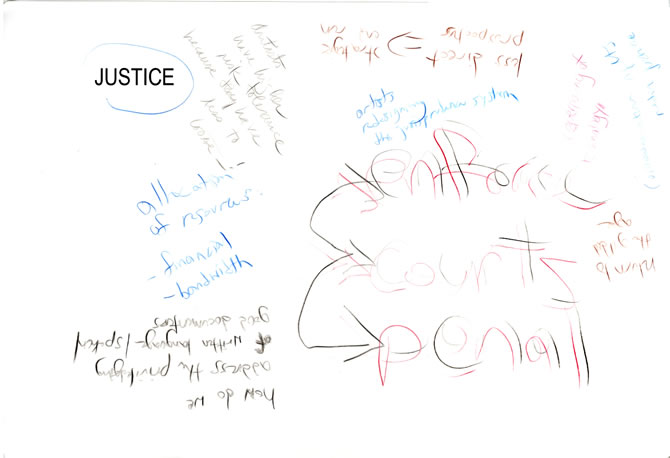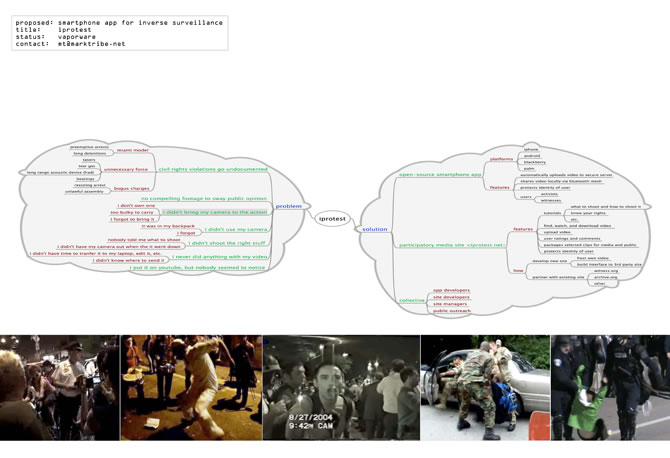What is the meaning of justice in contemporary society? On the one hand, this may be a philosophical argument regarding equality, fairness and empathy. On the other, we may question current national and international legal systems, their soundness and their validity. At the beginning of his first term, President Obama recently called for increased transparency and accountability in the rule of law. Is justice a matter of law? Is it a personal or public matter?
If we all learned to be truly compassionate and respectful of our neighbors, fellow citizens and people across the globe, would our concept of justice change? What kind of authority does the Supreme Court have as the highest judicial body in the United States? Whether it be Brown vs. Board of Education, Roe v. Wade, or more recent cases such as debates over Proposition 8, what our government and society understand to be “just” undoubtedly impacts our lives. Equal treatment in the eyes of the law and equal opportunities for all people, both in this country and in the world, should be something for which we collectively strive. What is your relationship with justice?
View the Justice Projects
Justice Discussion at Launch Dinner Event

Notes on Justice Table placemat
Following the public AIC launch event on the afternoon of Oct. 9, 2009, approximately 64 people reconvened for a dinner/discussion event at MIT’s Stata Center dining room, organized by the Platform 2 artists’ collective. Each table focused on one of the eight themes of the Artists’ Prospectus for the Nation, assisted by a commissioned placemat by a New England-based artist (see the “Justice ” placemat below by Mark Tribe). An empty placemat at each table was used by diners to record notes from the discussion. Pictured above is the front of the notated placemat from the Justice Table.
And here is a summary by a table notetaker:
I’m happy to share my reflections from our conversation at the ‘Justice’ table. Much of it took the form of questions [either with the whole group or in some side-bar chats or through ideas only partially expressed….]. Here is what I remember:
- Should artists come forward into the public sphere with their creative abilities and insight to share in generating new forms for social justice? Visibly or covertly? To come forward implies an ‘off center’ or marginalized position. A uniquely Western position? What would happen?
- Can artist / activists become real game-changers in the field of justice through their projects, language, tactics, and technology? A volatile ‘context’. Will the forms of social networking, locative media and other device-enabled communication significantly shift the way justice is denied or delivered? [i.e. Mark Tribe’s‘iprotest’ project]
- Do artists have the unique advantage of creating such forms that fly under the radar because ‘under the radar’ is often the space inhabited by artists [an often invisible context with shifting contingencies]? Will the ‘public’ accept the different tactics of the artist? Living with ambiguity and change, high risk scenarios and other ‘life’ insecurities? Or is it better to stay ‘under the radar’? As artist / social activists, how much are we willing to give up or compromise? Can a desire for empathy and connection override differences?
- How do we fuse or integrate the characteristics of multiple disciplines [art, sociology, law, literature, urban planning etc. etc.]? Can such ‘mingled thinking’ change the way we ‘change’?
- We need new models and a new language to describe the form, content and context for social / art activists. Old terminology [associated with some unsuccessful, previous forms of ‘community’ art] can be a barrier.
- How can artists – who would like to fold social-activism into their practice – find consistent funding? In addition to the typical art funding agencies and foundations, should we look to other groups [i.e. humanities organizations, other funders of interdisciplinary projects etc.]? Should we seek support from organizations that are similarly interested in creating new contexts for more interdisciplinary approaches to creative development in all sectors of society? Do we play a role in creating the language – that will shape the interest – that will ultimately create an environment of support and maybe even collaboration?
Nancy Davies

Launch dinner placemat for the Justice Table by Mark Tribe.


